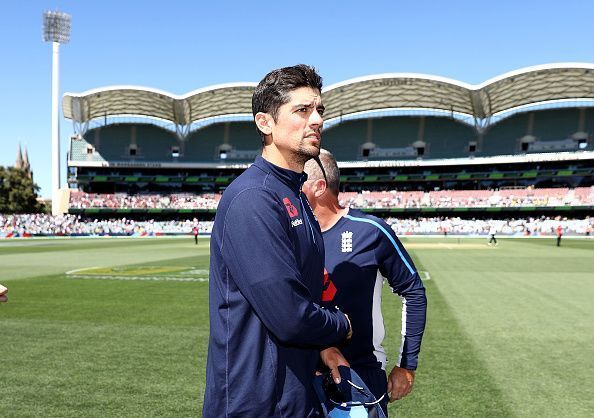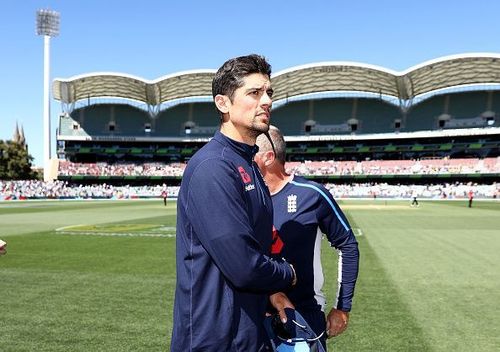
England's problem with passing the torch

This week England lost to Australia in the second Ashes test in Adelaide and now we move on to Perth where England has won once in their cricketing history, back in 1979. The last time they have salvaged a draw was also some thirty years ago, in 1986.
We are looking at a key issue that is plaguing the current English team, the passing of the torch. The veterans are not sticking around long enough to teach the tricks of the trade to the new players. The cricketing teams are rife with examples in which cricketers have planned their retirements in a way that a new crop of players is ready to take their place.
Competent batsmen like Kohli, Pujara, and Rahane have successfully replaced the fabulous four of Indian cricket Sachin, Laxman, Dravid and Ganguly.
The last time an Ashes team had set foot in the Australian shores was in 2013-2014 Ashes when they were mentally and spiritually demolished by the pace trio of Johnson, Harris and Siddle. The team of a generation disintegrated with all three aspects of their cricket taking a major hit and opened up wounds that have not yet healed.
The major hole that England has not been able to plug in even before their disastrous Ashes series is finding an opening partner for Cook.
Since Strauss’s retirement in 2012, England have tried thirteen opening combinations. Michael Carberry against a rampaging Johnson never stood a chance. Their batting bedrock at number three Trott returned home after the second test with stress related illness unable to face Johnson’s thunderbolts.
Subsequently, their veteran wicketkeeper Prior and veteran Bell were also dropped from the team due to poor form. The administrators then scored a self-goal by sacking their batting superstar Pietersen under controversial circumstances. Consequently, instead of having four open spots in their batting lineup, England ensured that it had increased to five.
The veterans who were supposed to pass the torch to the younger generation were dropped, sacked or retired. The only players of repute who remained were Cook and Root. Cook, who was also dropped from the team, luckily bounced back and is one of the best players of his generation. England's batting has never recovered after that, and they are unable to score those huge match winning totals.
In the same Ashes series English cricket lost one of its best spinners - Graeme Swann. He retired immediately after the third Ashes Test due to an elbow injury that had refused to heal properly even after being surgically operated.
Thus far England has not found any promising spinner apart from Moeen who is more of all rounder rather than a genuine spinner. Although Adil Rasid did show promise, England's focus on all-rounders pushed him back to obscurity.
Luckily, England pace bowling attack came out unscathed by the Ashes nightmare. Their bowling spearheads, Anderson and Broad, continue to carve out magic spells of swing bowling whenever their team desperately need.
In the recent tests England’s recipe of success has been the rescue acts of their lower middle year trio of Stokes, Ali and Bairstow punctuated with the individual brilliance of Cook and Root. This is ably backed by the bowling genius of Anderson and Broad.
This brings me back to the main issue of passing the torch. Imagine a scenario in which Pietersen stayed around for couple of more years mentoring the new crop of English batsmaen like Vince and Malan.
Swann being around for some more time, is playing along side Ali and Rashid. The Ashes of 2013-14 disintegrated a once great team and consequently there was no passing the torch moment of some English greats.